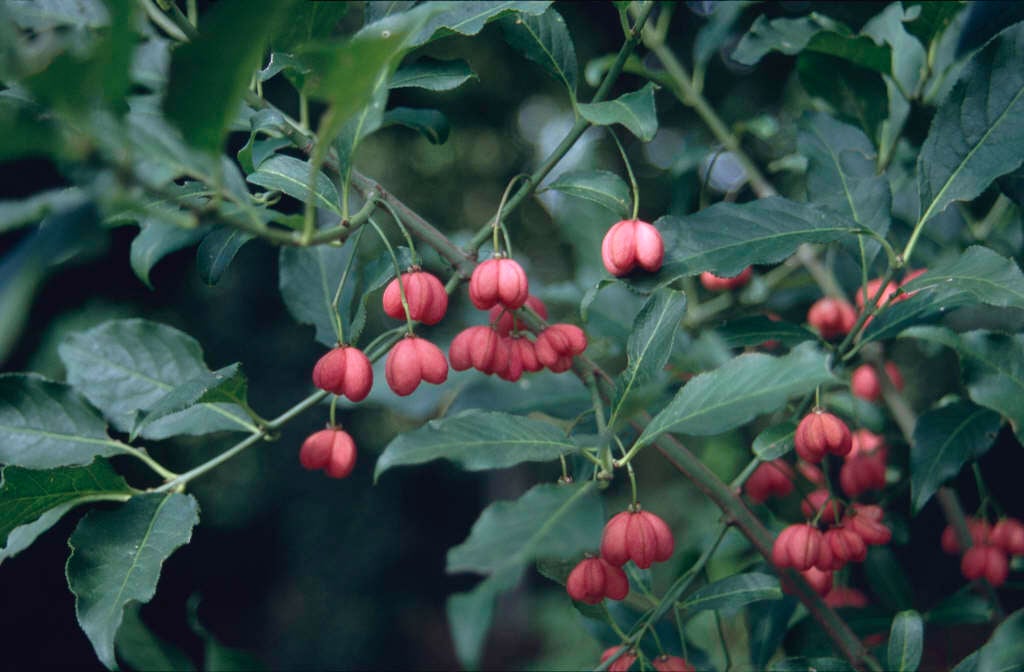Euonymus europaeus
spindle
A vigorous, spreading deciduous shrub or small tree to 3m, with narrowly ovate leaves turning pink or red in autumn, and panicles of small greenish-white flowers followed by 4-lobed pink fruits which split to reveal orange seeds
Other common names
ananbeamcat tree
see morecatwood
common spindle tree
dogwood
gatten tree
gatter tree
louseberry tree
pegwood
prick timber
prickwood
skewerwood
spindle tree
Synonyms
Euonymus bulgaricusSize
Ultimate height
2.5–4 metresTime to ultimate height
10–20 yearsUltimate spread
2.5–4 metresGrowing conditions
Moisture
Moist but well–drained, Well–drainedpH
Acid, Alkaline, NeutralColour & scent
| Stem | Flower | Foliage | Fruit | |
| Spring | White | Green | ||
|---|---|---|---|---|
| Summer | Green | |||
| Autumn | Red Pink | Orange Pink | ||
| Winter |
Position
- Full sun
- Partial shade
Aspect
South–facing or North–facing or West–facing or East–facing
Exposure
Exposed or Sheltered Hardiness
H6Botanical details
- Family
- Celastraceae
- Native to GB / Ireland
- Yes
- Foliage
- Deciduous
- Habit
- Bushy
- Potentially harmful
- Humans/Pets: Harmful if eaten, wear gloves and other protective equipment when handling. For further information and contact numbers regarding pets, see the HTA guide to potentially harmful plants
- Genus
Euonymus can be deciduous or evergreen shrubs or small trees, often with fine autumn colour, and small flowers followed by colourful fruits
- Name status
Correct
- Plant range
- Europe to W Asia
How to grow
Cultivation
Grow in well-drained soil in sun or partial shade
Propagation
Propagate by seed or semi-hardwood cuttings
Suggested planting locations and garden types
- City and courtyard gardens
- Coastal
- Cottage and informal garden
- Wildflower meadow
- Wildlife gardens
- Flower borders and beds
- Hedging and screens
Pruning
Pests
May be susceptible to vine weevil, horse chestnut scale, euonymus scale and caterpillars
Diseases
May be susceptible to powdery mildews, a leaf spot and sometimes honey fungus
Get involved
The Royal Horticultural Society is the UK’s leading gardening charity. We aim to enrich everyone’s life through plants, and make the UK a greener and more beautiful place.
